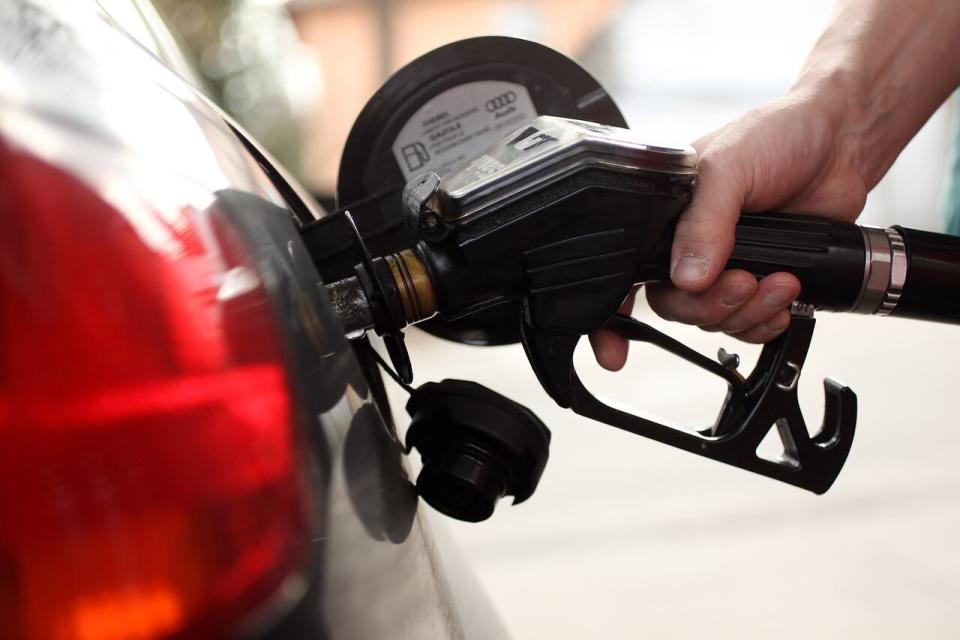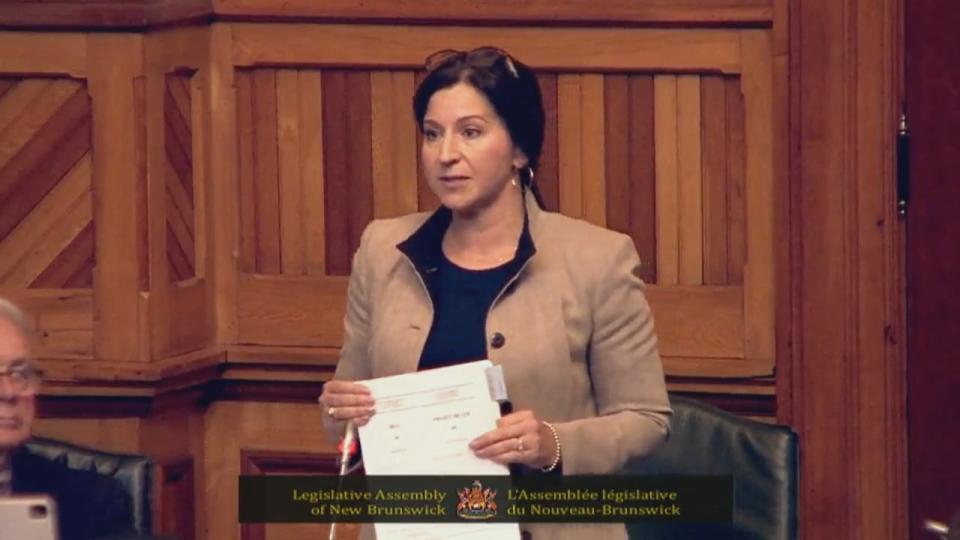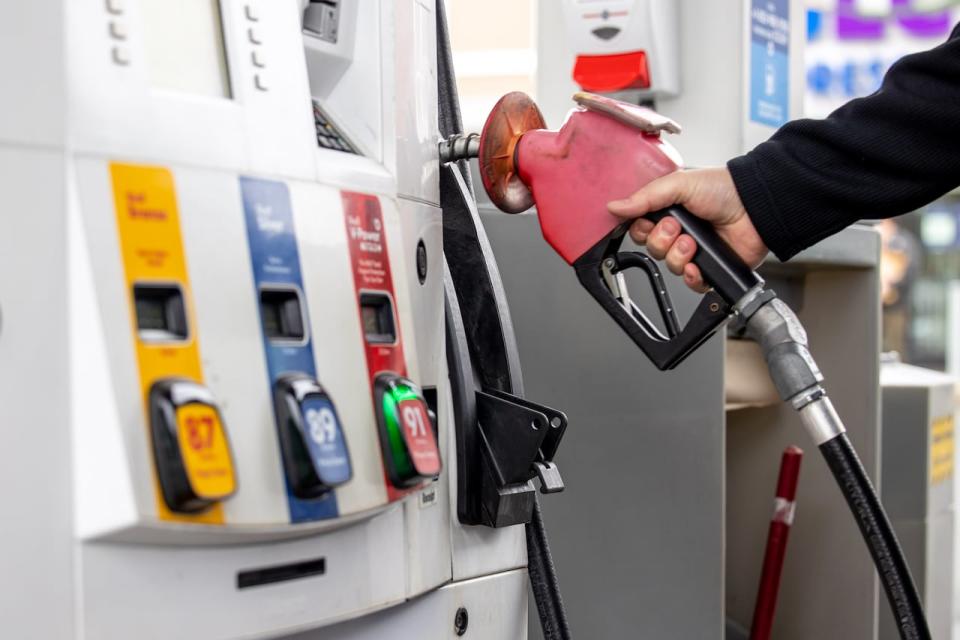Province doesn't know where extra carbon charge on gas is going

The New Brunswick government has no idea whether an extra six-to-seven-cent charge on a litre of gasoline is ending up where it's supposed to go.
Officials recently told the legislature's public accounts committee that it's impossible to determine who is ending up with revenue from the so-called "carbon cost adjustor," slapped on the price of gas in July.
"Where it shows up between the retailer and the wholesaler, or the wholesaler and the refinery, I don't know," said Tom McFarlane, the deputy minister of natural resources and energy development.
"I'm not aware of the internal prices that go on between them."
McFarlane was fielding questions from Fundy-The Isles-Saint John West Progressive Conservative MLA Andrea Anderson-Mason, who sounded skeptical of the PC government's message that the extra charge would help small gas stations.
"I'm finding it difficult to believe that the seven cents is going directly into the retailers' pocket," she said.

Fundy-The Isles-Saint John West PC MLA Andrea Anderson-Mason said it's hard to believe the extra money is going to retailers. (New Brunswick Legislative Assembly livestream)
Anderson-Mason peppered McFarlane with questions when he confessed to not knowing who was getting the money.
"Shouldn't we be aware of that, of where that's going?" she asked.
"Where did that seven cents go that the consumer paid over all this time? Who has the benefit of that? Somebody's getting it somewhere. Who's getting the seven cents?"
Last fall the Higgs government passed legislation giving the Energy and Utilities Board the authority to add the adjustor to the formula it uses to set maximum gasoline prices every week.
It was a response to new federal clean fuel regulations designed to help lower Canada's greenhouse gas emissions.
The regulations reward oil refineries that reduce their carbon intensity — the amount of greenhouse gases they emit in their production process.

The adjustor has fluctuated around six to seven cents for a regular unleaded litre of gas since July 1. (Robert Short/CBC)
Companies with refineries like Irving Oil can choose from different emissions-reduction strategies that earn them credits they can sell in a trading market. Those that don't reduce emissions are penalized by being forced to buy credits in that market.
But Irving, because it exports most of its product to the United States, isn't eligible for as many credits.
McFarlane told the committee that because New Brunswick regulates the final price of gasoline charged to consumers, retailers could be "squeezed" by the new rules.
"If we don't have a mechanism to show that price somewhere in the formula, it'll ultimately be the retailer who gets squeezed in the end," he said.
The refinery could pass its added costs to wholesalers, who could then pass them to retail gas stations, who would be prevented from passing it on to customers due to the maximum-price law.
Industry consulted to create formula
The EUB hired the accounting firm Grant Thornton to develop a proposed model for the adjustor. It consulted several industry players to come up with a formula, including Irving Oil, whose refinery is a major supplier of gasoline in the region.
The adjustor has fluctuated around six to seven cents for a regular unleaded litre of gas since July 1. The EUB set it at 5.96 cents last Friday.
Green Leader David Coon said the adjustor was designed to eliminate the cost of the federal regulations on Irving, taking pressure off the company to reduce its emissions.
Federal Environment Minister Steven Guilbeault said in June the initial cost impact of the regulations should be "very small, incremental," but Irving is assuming a "worst-case scenario" that may not come to pass as the new credit market sorts itself out.
"There's no regulatory reason why the price of gasoline should increase this July," he said.
At the Sept. 8 committee session, MLAs were told that contracts between the Irving refinery, wholesalers and retailers are confidential "commercial arrangements," some long-term and some short-term.
No way to repay customers if adjustor too high
"It's not something we can track. It's private information, it's private companies, so it's not publicly available," said Heather Quinn, the director of the energy division of the Department of Natural Resources and Energy Development.
Anderson-Mason pointed out that Nova Scotia's regulator hired two consultants, one who suggested an adjustor that produced a surcharge similar to New Brunswick, and a second who concluded there would be no price impact all.
The Nova Scotia regulator split the difference and established an adjustor charge in the 3.5-cent range — half that of New Brunswick's.
McFarlane pointed out the EUB plans to review the adjustor formula after six months.
If it turns out the New Brunswick adjustor was too high or not necessary, McFarlane said there is no way for customers who've been paying it to get their money back.
"There's not a mechanism to recoup it that I know of," he said.


